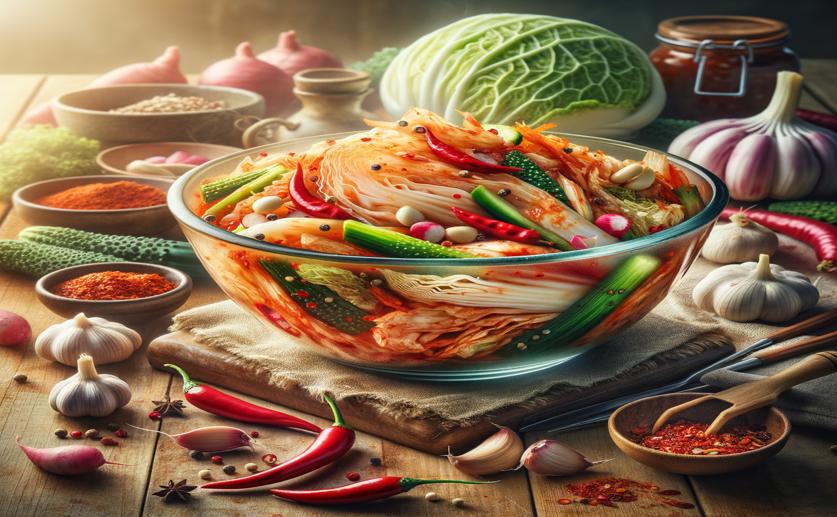
Kimchi Consumption Linked to Healthier Cholesterol Levels in Large Study
Jenn Hoskins
22nd May, 2024

Image Source: Natural Science News, 2024
Key Findings
- The study, conducted in Korea, explored the impact of kimchi consumption on blood lipid levels among adults
- Higher intake of Baechu kimchi (2-<3 servings/day) was linked to improved cholesterol and triglyceride levels, especially in women
- In men, Baechu kimchi consumption was associated with increased levels of good cholesterol (HDL-C)
References
Main Study
1) Association between traditional Korean fermented vegetables (kimchi) intake and serum lipid profile: using the Korean Genome and Epidemiology Study (KoGES) cohort.
Published 21st May, 2024
https://doi.org/10.1007/s00394-024-03424-9
Related Studies
2) Impact of nutrients and food components on dyslipidemias: what is the evidence?
3) Beneficial Effects of Kimchi, a Korean Fermented Vegetable Food, on Pathophysiological Factors Related to Atherosclerosis.
4) Non-linear association between serum folate concentrations and dyslipidemia: Korea National Health and Nutrition Examination Survey 2016-2018.



 10th April, 2024 | Jenn Hoskins
10th April, 2024 | Jenn Hoskins